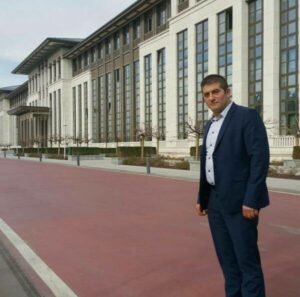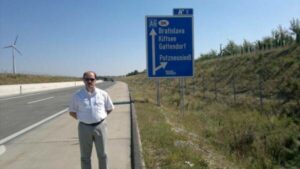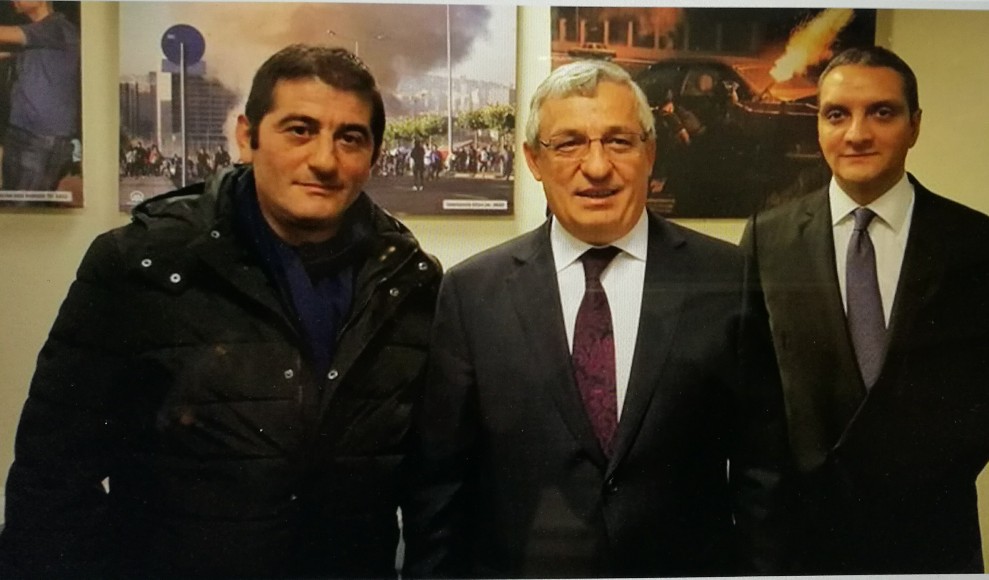A Belgian court has started the trial of the members of an alleged Turkish hit team who were claimed to be preparing for attacks on Remzi Kartal, co-chair of the People’s Congress of Kurdistan (Kongra-Gel), and Zübeyir Aydar, a member of the Kurdistan Communities Union (KCK) in 2017, the ANF news website reported.
The court accepted the defendants’ request for additional time on Friday and ruled to proceed on March 11, 2022.
“The authorities still take the position that there is no concrete evidence against the suspects. We strongly disagree with that,” lawyer Jan Fermon was quoted by ANF as saying.
The members of the hit team were exposed in a 2017 Belgian police operation in Brussels as they were allegedly preparing for attacks on Kartal and Aydar.
The suspects, who were identified by the French Le Journal du Dimanche weekly in a report published on March 14, are Zekeriya Çelikbilek, a former Turkish military officer and a French citizen; Yakup Koç, who had a Turkish police ID on him when he was stopped by Belgian police in a car with Çelikbilek; and Hacı Akkulak, a Kurdish man living in Belgium.
ANF said the investigation into the alleged hit team members had been carried out by Belgian authorities in strict confidence and that the investigation file included more than 1,000 pages.
The automobile carrying the three men was stopped by Belgian police after it had driven several times around the Kurdish National Congress building in Brussels, raising suspicions among Kurdish officials in the building about their motivation.
Belgian police conducted an operation against the alleged gang members several months after they stopped their car; however, Çelikbilek and Koç had already left Belgium by then.

In March the French weekly published photographs that include one showing Çelikbilek posing with İsmail Hakkı Musa, the Turkish ambassador to France, at the embassy in Paris and another of Çelikbilek in front of the presidential palace in Turkey, strengthening suspicions about the involvement of Turkish state officials in black operations abroad, according to ANF.

Photos of Koç are from the years 2008 and 2011. One was taken on the road to Bratislava, the capital city of Slovakia, while the other one shows him on the famous French island of Mont Saint-Michel. In his photos, Koç is seen pretending to be a “tourist,” according to ANF.
The ANF report supports claims made by the French weekly about Musa’s involvement in black operations in Europe on behalf of the Turkish state.
In its report Le Journal du Dimanche reported on an investigation conducted by Belgian authorities into Musa related to his alleged role in the assassination of three female Kurdish politicians and activists in Paris in 2013.
Outlawed Kurdistan Workers’ Party’s (PKK) founding member Sakine Cansız, Kurdistan Information Bureau (KNK) Paris representative Fidan Doğan and Leyla Söylemez, who was a member of the Kurdish youth movement, were murdered in their Paris bureau on Jan. 9, 2013. Suspect Ömer Güney died in prison on Dec. 17, 2016, a few weeks before his trial at the Paris Criminal Court. However, the case was closed due to Güney’s death under suspicious circumstances.
Claims regarding Turkish spy cells and their mobilization in Europe were also covered in the piece.
The newspaper based its report on a confidential document possessed by Belgian authorities. At the same time the newspaper published the news, Musa left Paris and returned to Turkey.
“His assignment has ended in Paris,” said Turkish authorities regarding his abrupt departure from France.
According to Kartal, who spoke to the medyanews website about the role of Musa in the illegal operations of Turkish intelligence abroad, Musa was warned by the French authorities of the pending serious accusations about his involvement in the assassination plot and after that, he left the country.
Claiming that Musa’s role in the murder of the three Kurdish women in Paris was obvious, Kartal said, “We can clearly say that Hakkı Musa, who was in charge in Belgium at the time, coordinated the killings.”
“When all the preparations were ready for the massacre, Hakkı Musa was called to Turkey for security reasons. He was in Turkey when the massacre took place. However, he became National Intelligence Organization [MIT] deputy undersecretary after he returned to Turkey. All the murders that took place outside Turkey were organized by MIT’s foreign office. After some time had passed following the massacre, İsmail Hakkı Musa was assigned to the Turkish Embassy in France,” Kartal further stated.



